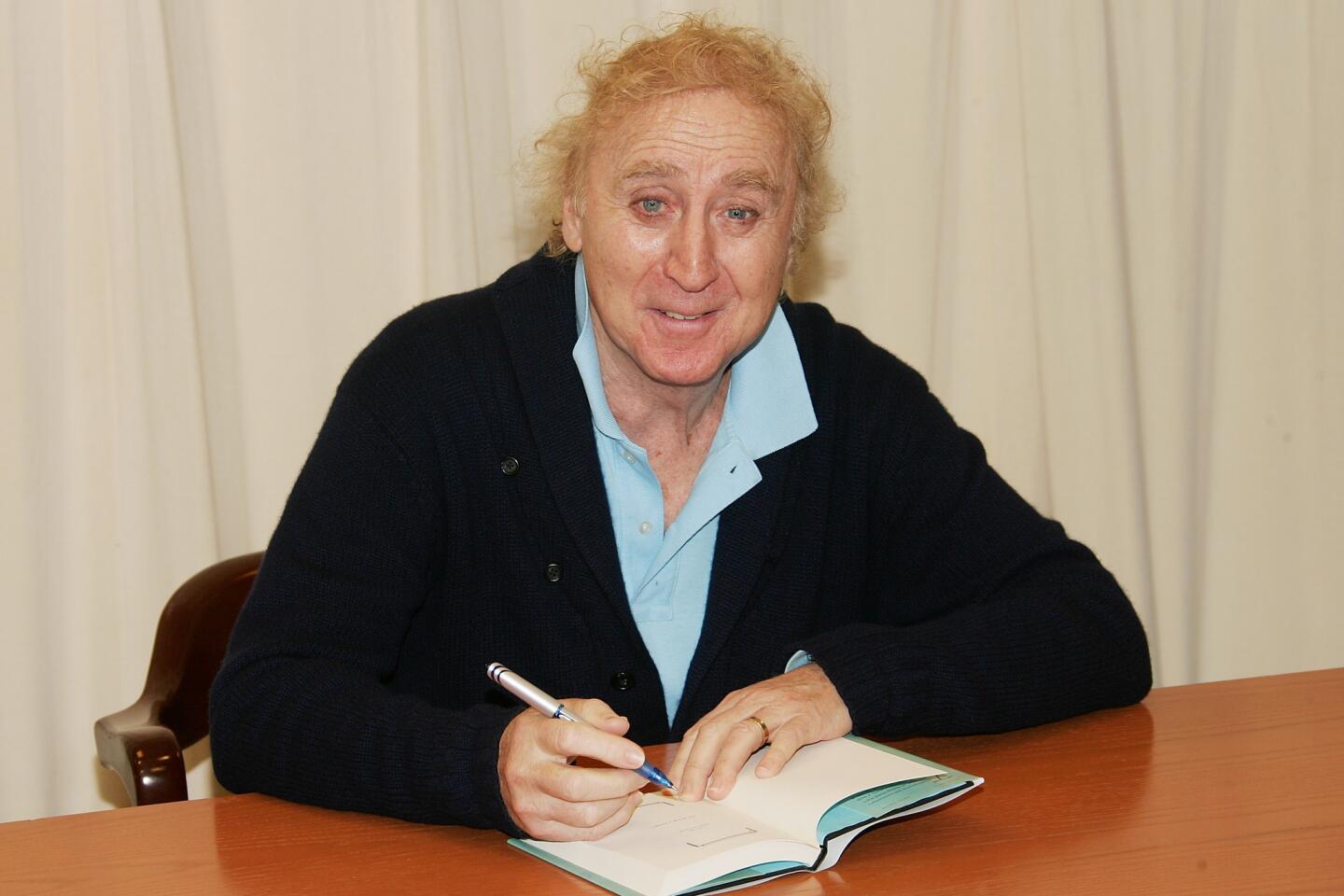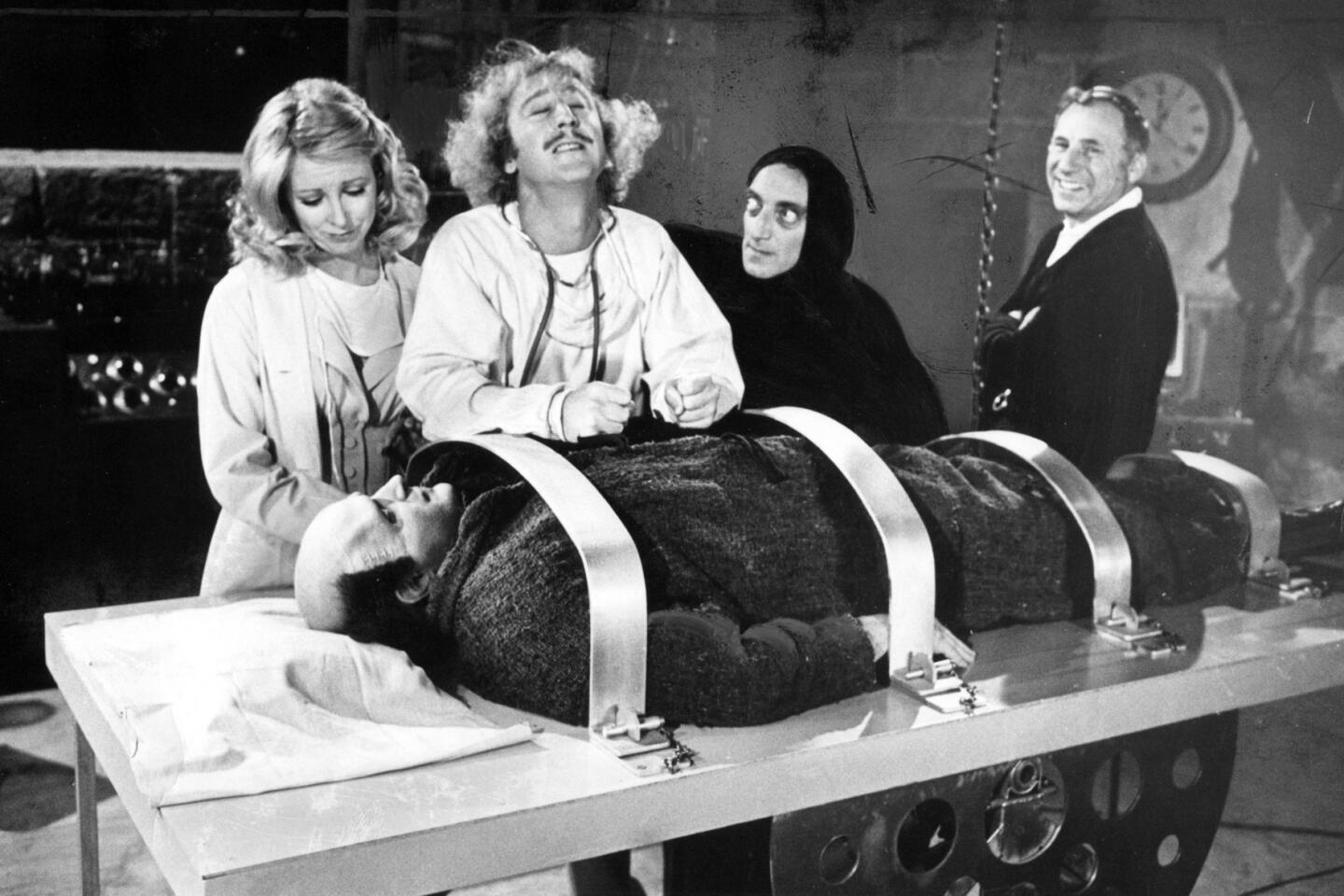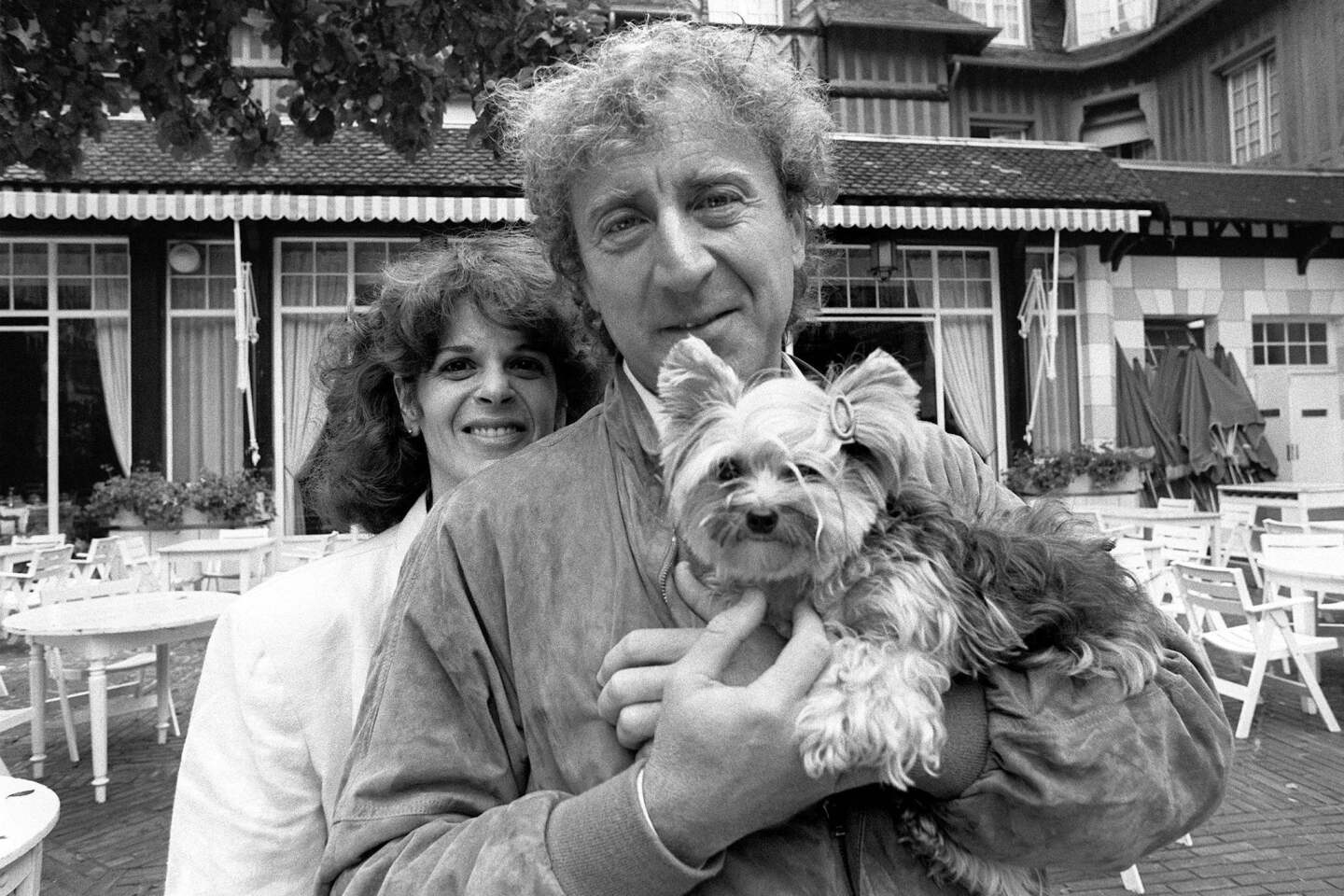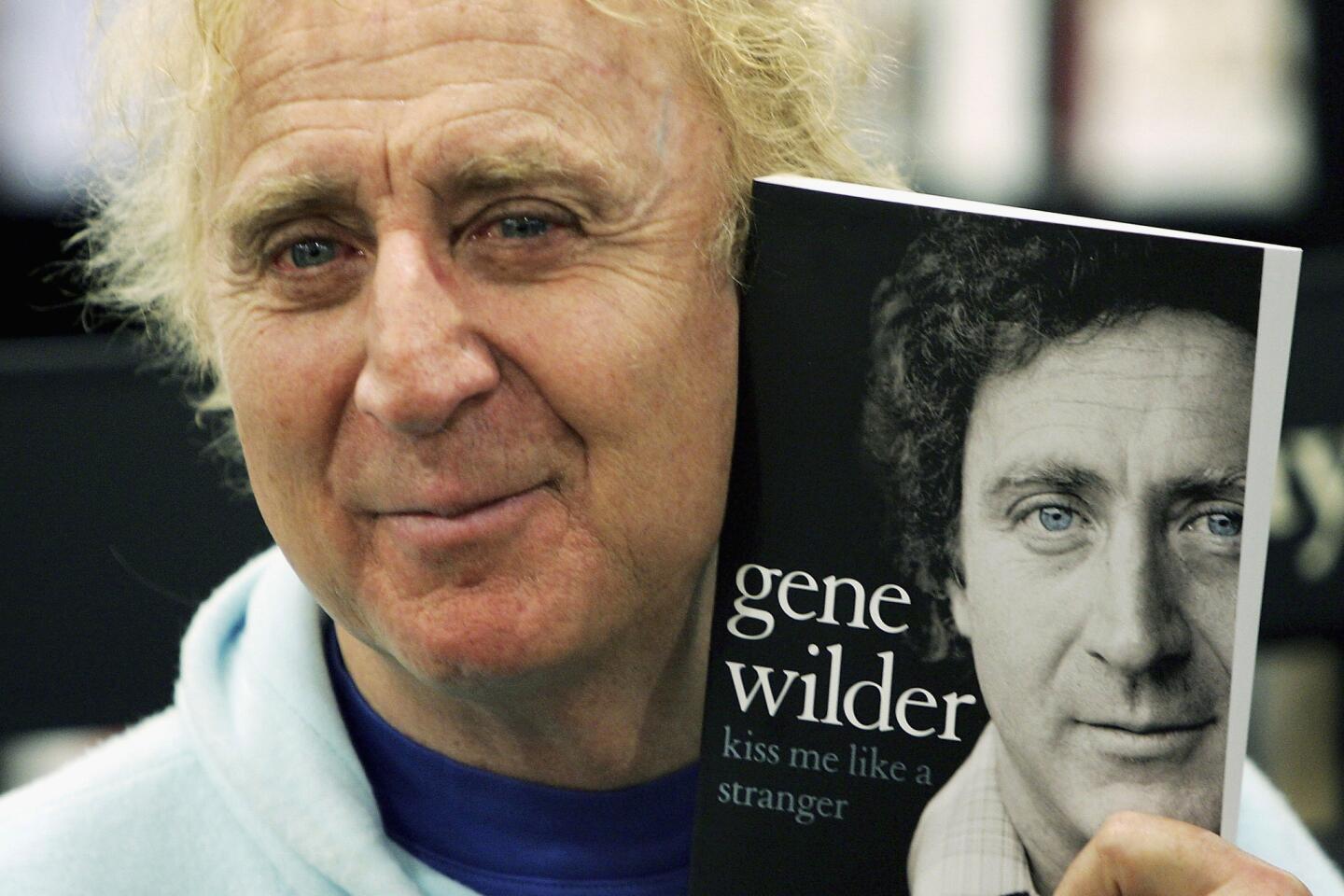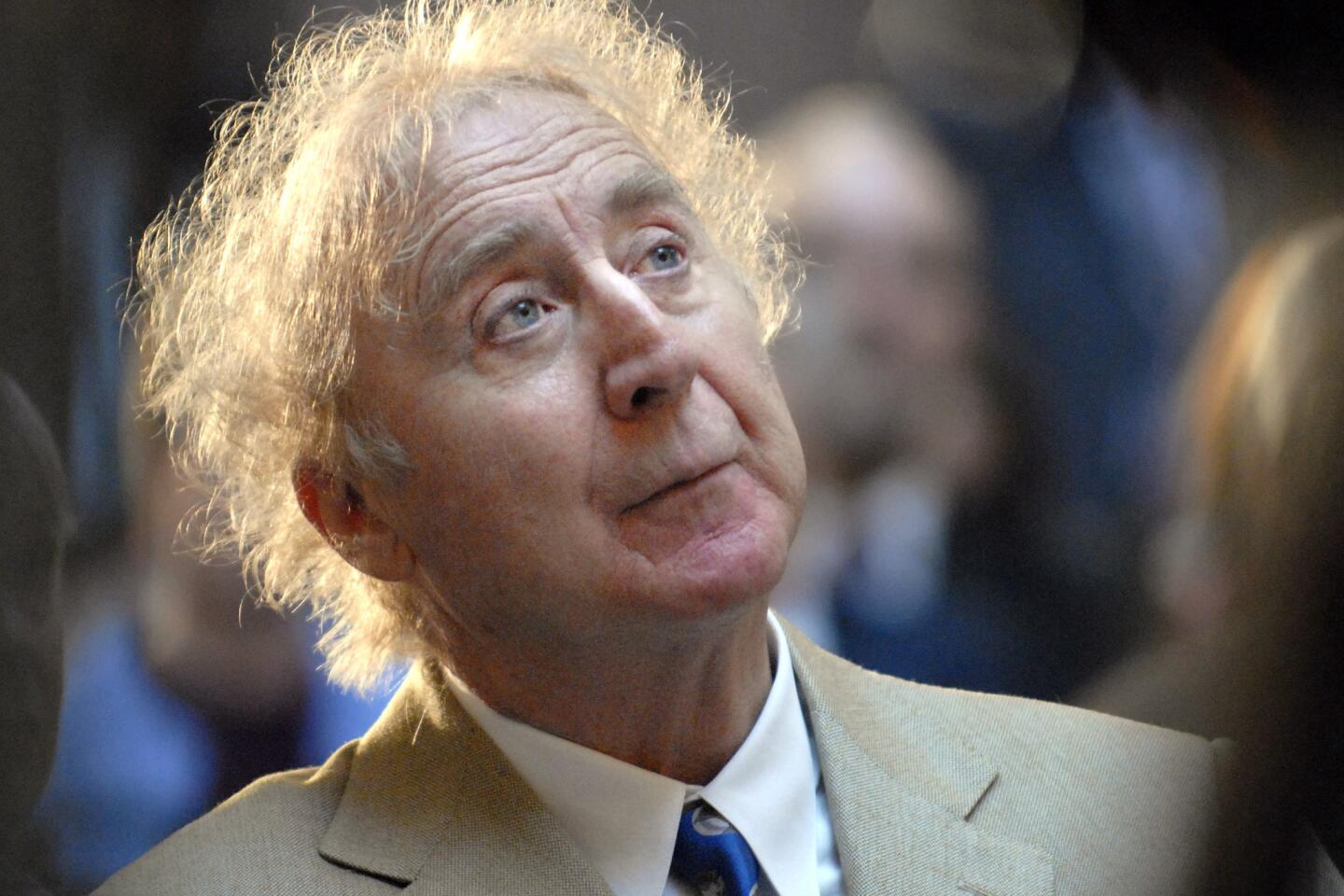From âWilly Wonkaâ to âStir Crazyâ: Remembering Gene Wilder through his five greatest performances
When Gene Wilder was considering taking the role of the delightfully demented title character in 1971âs âWilly Wonka and the Chocolate Factory,â legend has it that his sticking point was the manner of Willy Wonkaâs first appearance in the film.
Wilder demanded that the quizzical confectioner first be seen hobbling, with a cane, like some doddering recluse, as he walks to the gate to greet the five children heâd be admitting to his fantastical factory. Then his cane would stick in the red carpet, sending Wonka plummeting to the ground. But before he hit, he tucked into a roll and sprang up like an acrobat.
âI said, âIâd like to come out with a cane and be crippled because no one will know from that time on if Iâm lying or telling the truth,ââ revealed Wilder in the âPure Imaginationâ documentary on the âWilly Wonkaâ DVD.
Wilder â who died Aug. 28 at 83 from complications from Alzheimerâs disease â wanted the audience to be off-balance, to never be sure what they were going to get from Willy Wonka.
And that was the draw of all of Wilderâs best performances. There was always mania lurking under the surface of the actorâs innocuous, somewhat frayed exterior. And what made Wilder â who approached each role with a rigor that came from training in both the Stanislavski and Strasberg methods â so irresistible was the wondrous tension of precisely when his mania would erupt.
Audiences got their first look at Wilderâs volcanic gifts in Mel Brooksâ 1967 classic, âThe Producers,â in which Wilder played the (normally) mild-mannered accountant Leo Bloom who reluctantly joins the Broadway swindle hatched by the morally elusive Max Bialystock (Zero Mostel).
There are many things of note in âThe Producersâ (anytime âSpringtime for Hitlerâ is invoked comes to mind), which is so resilient a film that not only has it survived a Tony-winning Broadway adaptation, it endures despite a tepid film adaptation (starring Broadwayâs Matthew Broderick and Nathan Lane) of that theatrical experience.
But the moment when Wilderâs Bloom realizes the depth of their deception â that theyâve sold 25,000% of the play to a cadre of little-old-lady investors â and loses his mind is the one that resonates. âIâm hysterical. Iâm having hysterics. Iâm hystericalâŚâ Mostel splashes water in his face. âIâm wet. Iâm wet. Iâm hysterical and Iâm wet.â Mostel slaps him. âIâm in pain. And Iâm wet. And Iâm still hysterical.â
Watching Wilder in âThe Producersâ is like watching a childâs toy that has been wound up and stuck in a box, waiting to unspool.
Conversely, you spend all of 1974âs âBlazing Saddlesâ waiting for that eruption and it never comes. Brooksâ genius in casting his well-integrated Western â about a black sheriff sent to tame a white frontier town â was calling on Wilder to play it cool as notorious gunslinger the Waco Kid.
Wilder absolutely holds the screen as the tarnished pistolero as he tells his story to Cleavon Littleâs Sheriff Bart, letting slip just the briefest glimmer of that energy: Displaying the rock-steadiness of his right hand, before bringing his left into view, twitching like a fish out of water. âToo bad this is my shooting hand,â he says.
One might think it hard to pick just one moment from âYoung Frankensteinâ (1974), Wilderâs final collaboration with Brooks as a director. And it is, because it is the only one of the three where Wilder is the lead â as Frederick Frankenstein, heir to his grandfatherâs bring-the-dead-to-life legacy â and heâs given so much to work with. From Frederickâs insistence that itâs pronounced âFronkensteinâ to the dance number with Peter Boyleâs Monster set to âPutting on the Ritz,â âYoung Frankensteinâ is littered with gems.
But if comedy is all about timing, then Wilder was the master of knowing precisely how long to let a loaded moment sit, uncommented on, like a jack-in-the-box you know is going to pop.
Early in the film, Frederick is giving a lecture on the central nervous system and Wilder â as matinee-idol handsome as he ever was â calmly fields questions. That calm fades when one student presses him on his grandfather Victorâs work. âYou are talking about the nonsensical ravings of a lunatic mind,â Wilderâs Frederick exclaims, getting more heated as he goes. âDead is dead! You have more chance of reanimating this scalpel than mending a broken nervous system!â
Then, of course, he stabs himself in the thigh with the scalpel. A full 10 seconds passes before Wilder says anything else â the comedy is contained entirely within that space; waiting for the tension to break, reveling in the time it takes before it does.
Wilder made four comedies with Richard Pryor â âSilver Streakâ âStir Crazy,â âSee No Evil, Hear No Evilâ and âAnother Youâ â but of them all, âStir Crazyâ has aged the best. Under the guidance of director Sidney Poitier, the class and race comedy of two showbiz wannabes who end up wrongfully convicted of bank robbery is modulated far better than in âSilver Streakâ (which has a rather unfortunate blackface interlude), but still has more edge than the toothless âSee No Evilâ and âAnother You.â
Poitier (and Pryor) ably guide Wilder through the filmâs most memorable scene, in which the white comedian tries his best to âact blackâ in order to impress on the other inmates that they are not to be messed with. And that bit of physical comedy â arms akimbo, strut modulated with what seems to be a scientific articulation of âsoul,â neck apparently unable to support a grown manâs head â has formed the nucleus of every other white comedianâs take on blackness.
It is a bravura bit of performance â slightly uncomfortable to watch today, but like so much of what Wilder did throughout his career, it is the result of a man in supreme command of his own gifts.
Wilder knew exactly how he wanted you to feel and knew exactly how to make you feel it.
It had been more than a decade since anyone had seen Wilder on screen, his last credit is as a voice on the childrenâs television show âYo Gabba Gabba.â He claims to have stepped away because he felt removed from what comedy had evolved into, as reliant as it had become on the outrageous and the profane. And, after his beloved wife Gilda Radner died of cancer in 1989, perhaps his heart just wasnât in it.
Which leaves todayâs audiences to feel his loss even more acutely. The Wilder we got was of the highest comedic order, but one wishes there was more Wilder to turn, and return, to.
ALSO
Gene Wilder dies at 83; âWilly Wonkaâ star and Mel Brooks collaborator
Gene Wilder on his first turn as a romantic lead in âFunny About Loveâ
Gene Wilder discusses his acting successes and preference for writing
Why Gene Wilder gave Gilda Radnerâs name to Cedars-Sinai for its cancer research program
A comic book I wrote imagined snipers shooting at police. Now that frightening reality haunts me
The emotional hooks of âHamiltonâ: Why the soundtrack makes me cry every single time
More to Read
Only good movies
Get the Indie Focus newsletter, Mark Olsen's weekly guide to the world of cinema.
You may occasionally receive promotional content from the Los Angeles Times.
